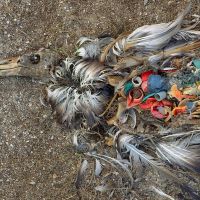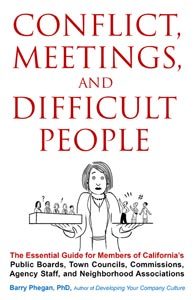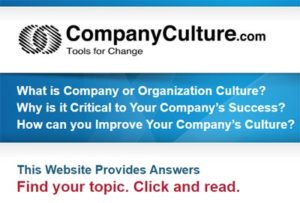 Dumping carbon dioxide and other waste products into the environment asked Mother Nature to swallow more than she could. She pushed back — in surprising, and costly ways.
Dumping carbon dioxide and other waste products into the environment asked Mother Nature to swallow more than she could. She pushed back — in surprising, and costly ways.
We have done something similar to our national culture. The educated and wealthy, with time to spare, dumped their preoccupations with racism, police brutality, climate change, inequity, inequality, and so on, onto everyone else. They ignored the reality that half the nation suffers from more concrete, immediate, and pressing issues — poverty, hunger, inflation, jobs, violence, and drug addiction. Half our nation can’t access $600 for an emergency. They are pushing back after being ignored for too long and swallowing too much. We shouldn’t be surprised.
Mia Culpa
I join you with my head in the sand. Who in Marin County, where I live, wasn’t pulled into the 2020 local media’s feeding frenzy around renaming Sir Francis Drake Boulevard? (Apparently, as a young sailor, Drake crewed on a slave ship.) Yes, it blew over, and rightfully so. That doesn’t mean racism isn’t a terrible force in our culture, but while renaming streets, or even paying millions in “retribution”, may ease guilt, it won’t purge racism.
Francis Drake Boulevard? (Apparently, as a young sailor, Drake crewed on a slave ship.) Yes, it blew over, and rightfully so. That doesn’t mean racism isn’t a terrible force in our culture, but while renaming streets, or even paying millions in “retribution”, may ease guilt, it won’t purge racism.
I mentioned my concerns about us failing half the nation to a friend, who replied, “But look at what Biden has done, increasing jobs and is slowing climate change.” In frustration, I replied, “Exactly. That’s the typical intellectual liberal response. It has nothing to do with the pain and emotional tribalism driving MAGA. If you can’t empathize with the destructive rage that’s pushing people towards a Savior, then you aren’t listening. Stop being ‘reasonable’. Try putting your head in theirs, where what they’re doing makes perfect sense.”
Role Switch
How ironic that the Republican Party, until recently the flag bearer of the educated and economic elite, now upholds the torch for the disenfranchised. Democrats, who since Roosevelt were the working people’s party, passed this baton across the aisle. By ignoring the reality of others, we are suffering the consequences.
 We live in an uncaring, unsustainable, consumer culture that disproportionately rewards certain groups and skills, while severely penalizing others. It’s the group that feels cheated, denied the promised apple, pushed to the back of the line, ignored, even mocked, who admire their Savior’s (the previous US president) behavior. For them, his behavior is not lying, misogyny, cheating, and theft. He is giving the finger to the society that deserves the finger, mocking a self-serving hypocritical culture, and saying outlandish things they wish they could say themselves.
We live in an uncaring, unsustainable, consumer culture that disproportionately rewards certain groups and skills, while severely penalizing others. It’s the group that feels cheated, denied the promised apple, pushed to the back of the line, ignored, even mocked, who admire their Savior’s (the previous US president) behavior. For them, his behavior is not lying, misogyny, cheating, and theft. He is giving the finger to the society that deserves the finger, mocking a self-serving hypocritical culture, and saying outlandish things they wish they could say themselves.
They might say, “Don’t tell me that by electing him I might shoot myself in the foot. I’m angry! He is the spokesperson my people have chosen, and I’m all in. If you’re not with me, you must be one of those destroying our nation.”
 Prepare for the Unexpected
Prepare for the Unexpected
Well, I won’t be sideswiped again. I was in shock, immobilized for three days after the 2016 presidential election. This time I’m ready for whatever happens, steeled for possible escalating social, political, and economic surprises and insults to my upper-middle-class sensibilities. I’m not letting the consequences of a string of cultural missteps, many resulting from “trickle-down” economic theory and largely beyond my control, ruin my life. As Seneca the Younger said, “We worry more in our imagination than in reality.” I could add, “Somewhere in this pile of horse droppings there’s a pony.”

In this pivotal moment, I’ll do my part, no finger-pointing, a foot in each tribe’s reality. At the same time, I’m looking for that gold ring, hoping we can rise above divisiveness and polarization and tribalism and inequity and inequality, and see ourselves as humans, each trying to do the right thing, live a good life, be recognized, appreciated, and valued for who we are and what we bring.
Maybe the Harris/Walz pairing is a winning ticket that moves us away from anger and retribution and toward inclusion and greater equity. Could we imagine consciously agreeing on what kind of nation we want, and then making it happen?
Being Human
We each possess the strengths, fears, and frailties that make our species so adorable and so terrifying. In my better moments, I remember that.
Thank you for reading.
Barry
Add Your Name below to my list to know when I have posted a new blog.




